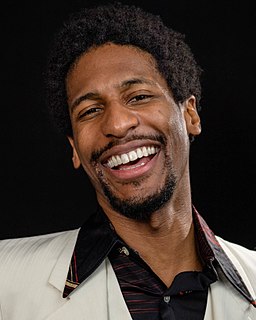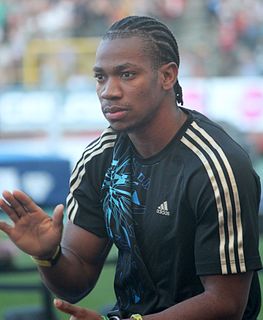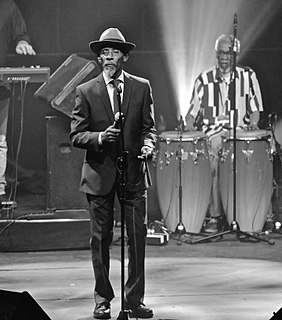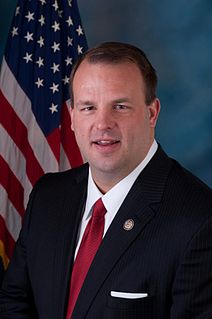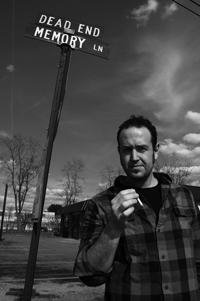A Quote by Herbie Hancock
One thing that sticks in my mind is that jazz means freedom and openness. It's a music that, although it developed out of the African American experience, speaks more about the human experience than the experience of a particular people.
Related Quotes
It really is a fact that liberals are much higher than conservatives on a major personality trait called 'openness to experience.' People who are high on openness to experience just crave novelty, variety, diversity, new ideas, travel. People low on it like things that are familiar, that are safe and dependable.
With the audience, I always say it's about giving the people an experience. And what the experience is about, it transcends just the music, and genre, and the venue. It's about the people coming together to share a profound and transformative moment. So that means the listener is actively engaged, and the listener is a part of the show, they're a part of the experience.
Jazz is really about the human experience. It’s about the ability of human beings to take the worst of circumstances and struggles and turn it into something creative and constructive. That’s something that’s built into the fiber of every human being. And I think that’s why people can respond to it. They feel the freedom in it. And the attributes of jazz are also admirable. It’s about dialogue. It’s about sharing. And teamwork. It’s in the moment, and it's nonjudgmental.
I say that creeds, dogmas, and theologies are inventions of the mind. It is the nature of the mind to make sense out of experience, to reduce the conglomerates of experience to units of comprehension which we call principles, or ideologies, or concepts. Religious experience is dynamic, fluid, effervescent, yeasty. But the mind can't handle these so it has to imprison religious experience in some way, get it bottled up. Then, when the experience quiets down, the mind draws a bead on it and extracts concepts, notions, dogmas, so that religious experience can make sense to the mind.
Whereas certain people start with a recollection or an experience and paint that experience, to some of us the act of doing is the experience; so that we are not quite clear why we are engaged on a particular work. And because we are more interested in plastic matters than we are in matters of words, once can begin a painting and carry it through and stop it and do nothing about the title at all. All pictures are full of association.
....the popular music of Jamaica, the music of the people, is an essentially experiential music, not merely in the sense that the people experience the music, but also in the sense that the music is true to the historical experience, that the music reflects the historical experience. It is the spiritual expression of the historical experience of the Afro-Jamaican.
Certainly Christianity is an experience, but equally clearly the validity of ane experience has to be tested. There are people in lunatic asylums who have the experience of being the Emperor Napoleon or a poached egg. It is unquestionably an experience, and to them a real experience, but for all that it has no kind of universal validity. It is necessary to go far beyond simply saying that something comes from experience. Before any such thing can be evaluated at all, the source and character of the experience must clearly be investigated.
That authentic experience that happens both in the artist and in the audience you can classify as a mystical experience. You can classify it as aesthetic shock, or even a psychedelic experience. Some people seek to recreate that experience through drugs. But the other way that you can do it is through art, and through spectacle. We have those experiences when we go to rock shows, or when we listen to a piece of classical music, or read a particular poem, or see a painting.
I wish reporters were more in tune to the difference between the Asian experience and the Asian-American experience. I think often they lump the two together and think that when I talk about Asian-American narratives that they can cite 'Crouching Tiger, Hidden Dragon' or 'Mulan' as proof of concept when it's a different experience.


